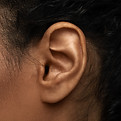
Reading
Is your child struggling with reading?
Reading is a complex skill that involves the integration of several cognitive processes. Using the framework below, I can help your child become a skilled reader. My framework is informed by the "Science of Reading" which is a vast, interdisciplinary body of scientifically-based research about reading and issues related to reading and writing. My teaching is also underpinned by the understanding that learning happens most efficiently when teaching is clear, systematic and does not leave students to construct or discover information without any guidance.
Reading Framework
We focus on five areas, all of which are necessary for your child to become a proficient reader.

Phonemic Awareness
The ability to identify and manipulate the distinct individual sounds in spoken words.

Vocabulary
Knowing the meaning of a wide variety of words and the structure of written language.

Phonics for Spelling and Reading
The ability to decode words using knowledge of letter-sound relationships. Students are encouraged to use
phonic skills as the first strategy for working out unfamiliar words rather than guessing or looking at pictures.

Comprehension
Understanding the meaning and intent of the text.

Reading Fluency
The ability to read accurately, quickly and with expression.
If any area within the Reading Framework is weak, reading proficiency can be impacted. A good way to visualise the complex processes involved in reading is through The Reading Rope.
Created by US psychologist Dr Hollis Scarborough, The Reading Rope describes reading by comparing it to the “strands of a rope.” There are two main strands
A) Word Recognition
B) Language Comprehension
Within each strand is a subset of strands.
With practice, the Word Recognition strand becomes more and more automatic, until it is done effortlessly and unconsciously. At the same time, language skill development, practice and life experience allows readers to weave the Language Comprehension strand in an increasingly strategic way.
If any of the strands are weak or not tight enough, the strength of the whole rope is impacted.
Language disorders significantly weaken the upper strand, which is one of the reasons most children with language disorders struggle with reading (as well as listening, speaking and writing).
Poor phonemic awareness and spelling pattern knowledge also lead to a weak lower strand, again weakening the whole rope and making fluent, skilled reading for meaning difficult.

